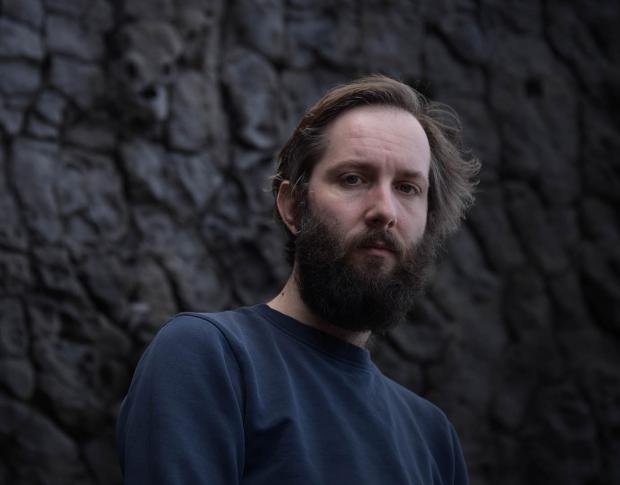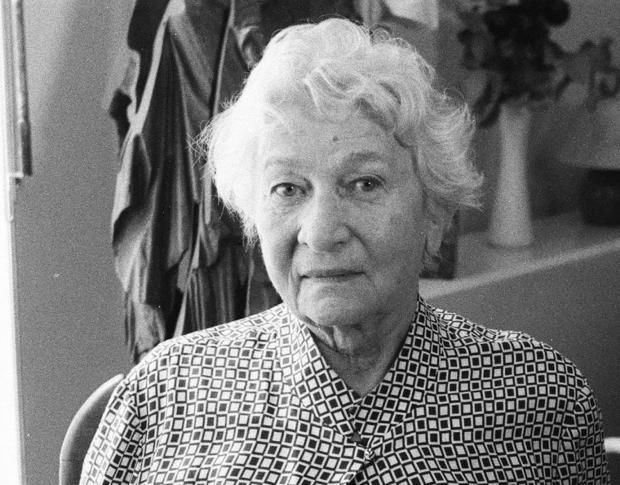Ahead of MaerzMusik, we catch up with François J Bonnet to talk about working with Éliane Radigue's Trilogie De La Mort
March 2020
“I think the first ‘actual’ concert I attended was a piano recital. I was probably nine...I was in the first row and spent the entire concert frozen by fear of disturbing the pianist.” – Bonnet
On 24 March François J Bonnet aka Kassel Jaeger will stage French composer Éliane Radigue's three part cycle Trilogie De La Mort under the star dome of the Zeiss-Großplanetarium in Berlin. The concert will mark the first time he's worked on the full three-hour set, and will run as part of Berlin's MaerzMusik festival. We caught up with Bonnet to delve deeper into the project.
How did you meet Éliane Radigue?
I first met her very briefly at a GRM concert where she was performing L’Île Re-sonante, but our actual meeting was some years after where I visited her to do an interview for one of my radio shows. At the time, my book The Order Of Sounds was about to be translated into English and my publisher Robin Mackay, who loves Éliane’s music, asked her about using a picture of her for the cover of my book. It was this famous picture where Éliane is listening to a shell, picture that resonates strongly with the first lines of my book. So Éliane was already aware of some aspects of my work. We spent a really nice afternoon doing the interview and exchanging on a lot of things. I visited her again and the idea of releasing a boxset of her synthesizer pieces came quickly. Then, and until today, it’s an ongoing exchange and a precious friendship.
It was noted in an interview with Robert Barry in The Wire 401 that when you were younger you listened to music in the dark through headphones. How has that method changed the way you experience music today?
Headphones in the dark was for me the best way to isolate and really dive into sound worlds. I guess it allowed a much more analytical listening, and listening to music meant for me, at that time, learning how it was made. I do think it shaped my way of listening but also my way of composing, with working on depths, layering and “micro-polyphonies”. I compose very much my music for the young listener I was.
You also mentioned it took you a while to enjoy concerts. Do you remember the first one you attended and how you felt about it?
I think the first “actual” concert I attended was a piano recital. I was probably nine [years old]. I think my piano teacher organised this small concert in my hometown and my mum took me there. I remember only being stressed out of making noise. I was in the first row and spent the entire concert frozen by fear of disturbing the pianist.
You'll be presenting Trilogie De La Mort at Maerzmusik. Can you explain more about the project.
Trilogie De La Mort is in fact three pieces that are thematically connected to Tibetan Buddhism but they were not thought as a cycle, at first. They were composed between 1985 and 1993. The name Trilogie De La Mort came afterwards. Actually, it’s French composer Michel Redolfi that gave this name the first time the three pieces were presented together. “Kyema”, the first piece is based on Bardo Thödol, the Tibetan Book Of The Dead. Bardo Thödol means "Liberation Through Hearing During the Intermediate State" which is particularly resonant with Éliane’s work. The second piece “Kailasha”, relates to an imaginary pilgrimage towards Mount Kailash. The last piece, “Koumé” refers to the passing of Éliane’s master. The titles start with a “K” which is the first letter in Tibetan alphabet. These three pieces deal with passing from one state to another, at the same time physically and spiritually.
What does it mean to present a piece in Zeiss-Planetarium space?
The planetarium offers a wonderful configuration for Éliane’s music. Seats are adapted for a prolonged listening, and for the concert, we decided only to show the celestial dome. Thanks to the sound system, we will be able to create a sonic immersion that will envelop the listener. The unfolding of Éliane’s music is always different, depending of the system and the acoustic properties of the room. It’s always about tuning this chain : music – speaker system – room – listeners.

Éliane Radigue. By Eleonore Huisse
Did you work with Radigue on the project?
I usually work with the organisers and report to Éliane when an important choice has to be made. In that case, I presented to Éliane the screening options we had and we agreed on using a minimal approach, but very much in resonance with the music, with screening only the night sky.
Where have you presented the work before. How did those spaces differ from the current space?
Actually, it’s the first time I will play myself the whole Trilogie. I played several times other, shorter pieces in a lot of different spaces: concert halls, churches, theatres. Each space has its strengths and weaknesses. My work is to channel the best I can Éliane’s music in the given space.
What does Trilogie De La Mort mean to you?
It’s less about meaning than impressions. And the main impression for me is fullness and experiential density. I love them [each cycle] all. Each of them is at the same time very unique and closely interleaved with the others.
How does Trilogie De La Mort relate to your work as Kassel Jaeger?
I would say that to me, the most direct connection with The Trilogie and my work rest on the place given to the listening experience as summoned and catalysed by the music. Éliane’s music can be shared and displayed in concert. But it can also be the occasion of self-introspection and self-decentering. It can be played in the dark, on headphones, offering a possible sound world to wander to this young listener I mentioned at the beginning of the interview.
MaerzMusik takes place across various venues in Berlin between 20–29 March. The line-up also features works by Heiner Goebbels, Beatriz Ferreyra, Philip Glass, Bernard Parmegiani, Éliane Radigue, Horaţiu Rădulescu, Phill Niblock, Halim El-Dabh, James Tenney, Iannis Xenakis and others. Also happening is a series of workshops and student performances.
Earlier this year Kassel Jaeger released Fragments III — Collected Resonances from Radiophonic Æther, available now on Bandcamp.


Leave a comment